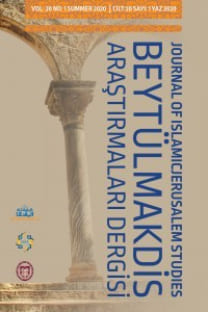MARDİN MÜZESİ’NDEKİ NUREDDİN ZENGİ SİKKELERİ
Zengiler, Halep ve Musul merkezli olmak üzere Irak, Suriye ve Türkiye’nin Doğu ve Güneydoğu Anadolu bölgelerinde 1127-1233 tarihleri arasında hüküm sürmüş önemli Türk devletlerinden birisidir. Musul ve Halep dışında Cizre, Sincar ve Şehrizor merkezli üç kolu daha bulunmaktadır. İmadüddin Zengi’nin 1127 yılında Musul’a atanmasıyla kurulan devlet çok geniş bir alana egemen olduktan sonra en önemli sorun olarak Haçlıları görmüş ve bu bağlamda Kudüs’ün Selahaddin-i Eyyûbî tarafından fethedileceği döneme değin uygun ortamı hazırlamak ile meşgul olmuşlardır. Zengiler’in en büyük sultanlarından birisi de İmadüddin Zengi’nin 1146 yılında Caber önlerinde şehit edilmesiyle birlikte Halep’e gelerek tahta oturan Nureddin Zengi’dir (1118-1174). Bu dönemde Haçlıların elinde olan birçok yeri geri almak için sürekli Haçlılarla mücadele etmiştir. Dindar, adil ve alim bir şahsiyet olan Nureddin Zengi ülkesini de imar etmeyi ihmal etmemiştir. Mardin Müzesi’ndeki zengin İslami sikkeler arasında Nureddin Zengi’ye ait sadece 2 adet sikke tespit edilmiştir. Nureddin Zengi’ye ait bakır sikkeler figür, yazı ve bezeme açısından diğer Zengi sikkelerinin yanında oldukça basit ve sade kalmaktadır. Nureddin Zengi’nin sadece adı ve unvanlarının okunabildiği sikkelerde basım yeri, basım tarihi ve diğer bilgiler okunamamaktadır. Yazılar ise Kufi hatlı olup birkaç bitkisel süsleme ile yetinilmiştir.
Anahtar Kelimeler:
Zengiler, Nureddin Zengi, Mardin, Sikke
Nur Al-Din Zengi's Coins in Mardin Museum
The Zengid dynasty is one of the prominent Turkish states that ruled Iraq, Syria and eastern and south-eastern Anatolia regions (today within contemporary Turkey) with Aleppo and Mosul as their centre between 1127 and 1233. Apart from Mosul and Aleppo, it had three more principalities centred in Cizre, Sinjar and Shahrizor. The state founded in 1127 when Imad al-Din Zengi was appointed to govern Mosul dominated a vast area, and then, they saw the Crusaders as their primary enemy and laid the foundations until the conquest of Jerusalem by Salah al-Din al-Ayoubi. One of the greatest sultans of the Zengids was Nur al-Din Zengi (1118-1174) who came to Aleppo and ascended the throne upon the death of Imad al-Din Zengi at Qal‘at Ja‘bar in 1146. At the time, he constantly fought the Crusaders to recapture many places they held. A pious, just and scholarly person, Nur al-Din Zengi also did not neglect the reconstruction of his country. Among the rich collection of Islamic coins in Mardin Museum, there are only 2 coins belonging to Nur al-Din Zengi. These copper coins are rather simple and plain in comparison with other Zengid coins in terms of motifs, script and ornament. Only the name and titles of Nur al-Din Zengi can be read on the coins. Place and date of mint as well as other information are not readable. The scripts are written in Kufic calligraphy and contain only a couple of vegetal motifs.
Keywords:
Mardin Zengids, Nur al-Din Zengi, Mardin, Coin,
___
- Butak, B., (1947), XI. XII. ve XIII. Yüzyıllarda Resimli Türk Paraları, İstanbul.
- Galip, İ., (1311), Meskukât-ı Türkmaniye Kataloğu, Kostantiniyye.
- Kök, B., (2007), “Nureddin Zengi, Mahmud”, DİA, C.33, İstanbul, 259-262.
- Poole, S., L., (1877), Catalogue of Oriental Coins in The British Museum, London.
- ISSN: 1367-1936
- Yayın Aralığı: Yılda 2 Sayı
- Başlangıç: 1997
- Yayıncı: Beytülmakdis Çalışmaları Vakfı
Sayıdaki Diğer Makaleler
Nureddin Zengi'nin Dımaşk ve Menbiç'teki Askeri Faaliyetleri
NÛREDDİN MAHMUD ZENGÎ DEVRİ’NDE (541-569/1146-1174) İLMİYE SINIFI
Haçlı Seferleri Esnasında Bilâdü'ş-Şâm'da Birlik Kurulmasında Nureddin Mahmud'un Rolü
Ahmed Abdallah MUHAMMAD, Mukhtar Ramadan AL-FAKI
MARDİN MÜZESİ’NDEKİ NUREDDİN ZENGİ SİKKELERİ
Burhan CHE DAUD, Abdal-fattah EL-AWAİSİ, Mohd Roslan Mohd NOR
Nureddin Mahmud b. İmadüddin Zengi Döneminde Vakıflar
Nureddin Zengi Döneminde Biladü'ş-Şam'da Fıkıh
ORTAÇAĞ’DA İSLÂM/TÜRK-İSLÂM TIBBININ PARLAK BİR MÜMESSİLİ: NUREDDİN HASTANESİ
NÛREDDİN MAHMUD ZENGİ’NİN KUZEY SINIRINDAKİ HIRİSTİYAN DEVLETLERLE İLİŞKİLERİ (1146-1174)
NÛREDDÎN ZENGÎ'NİN, SALÂHADDÎN EYYÛBÎ ELİYLE GERÇEKLEŞEN HAYALLERİ
